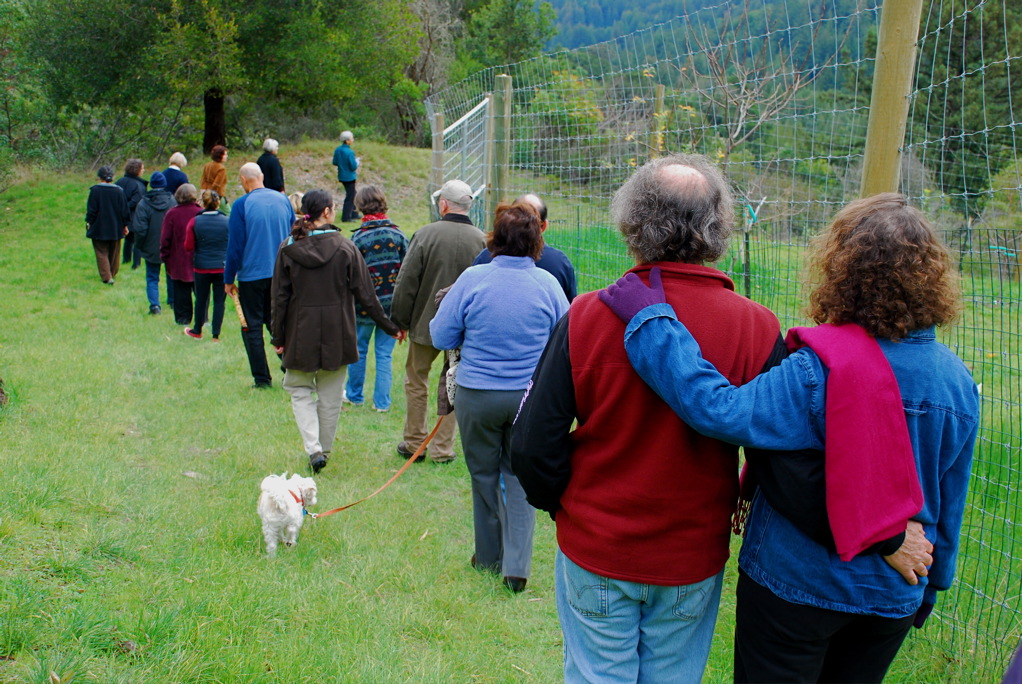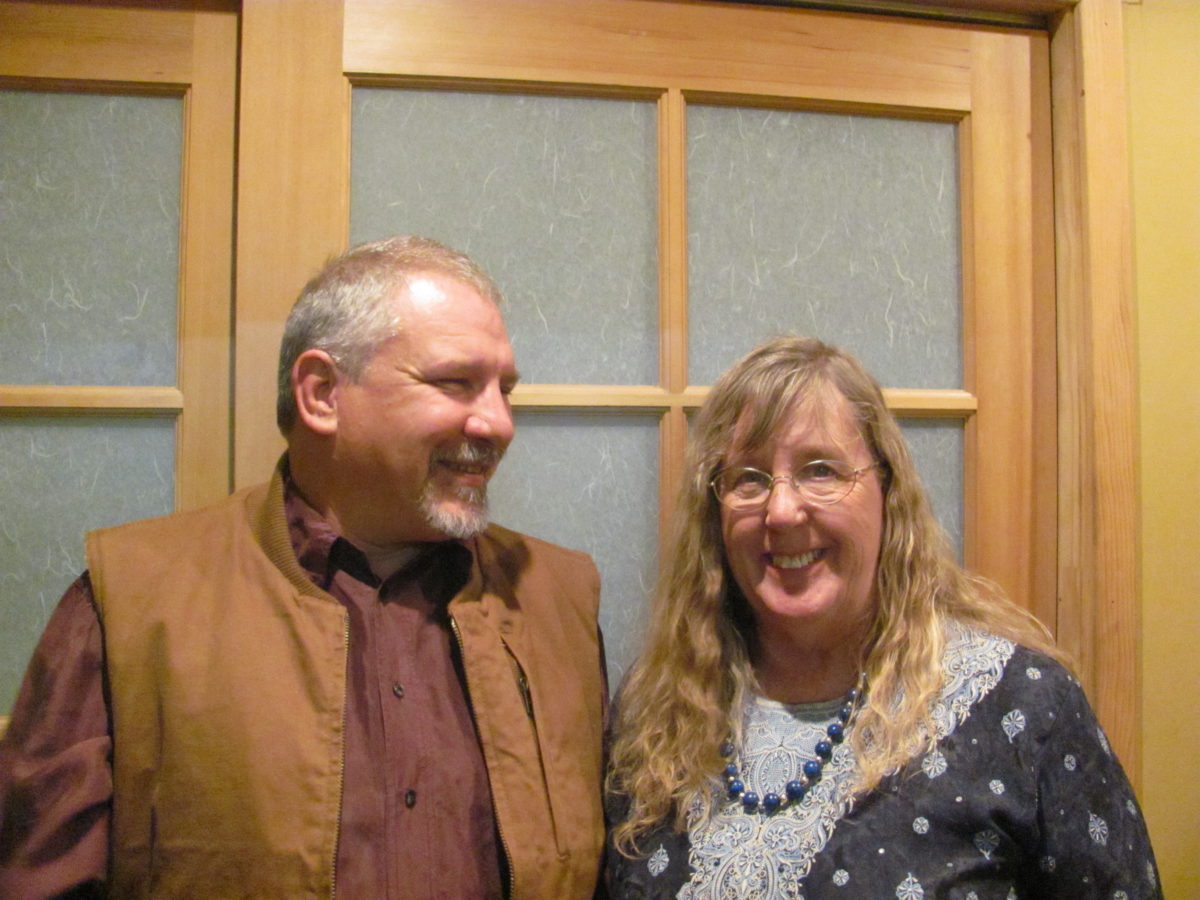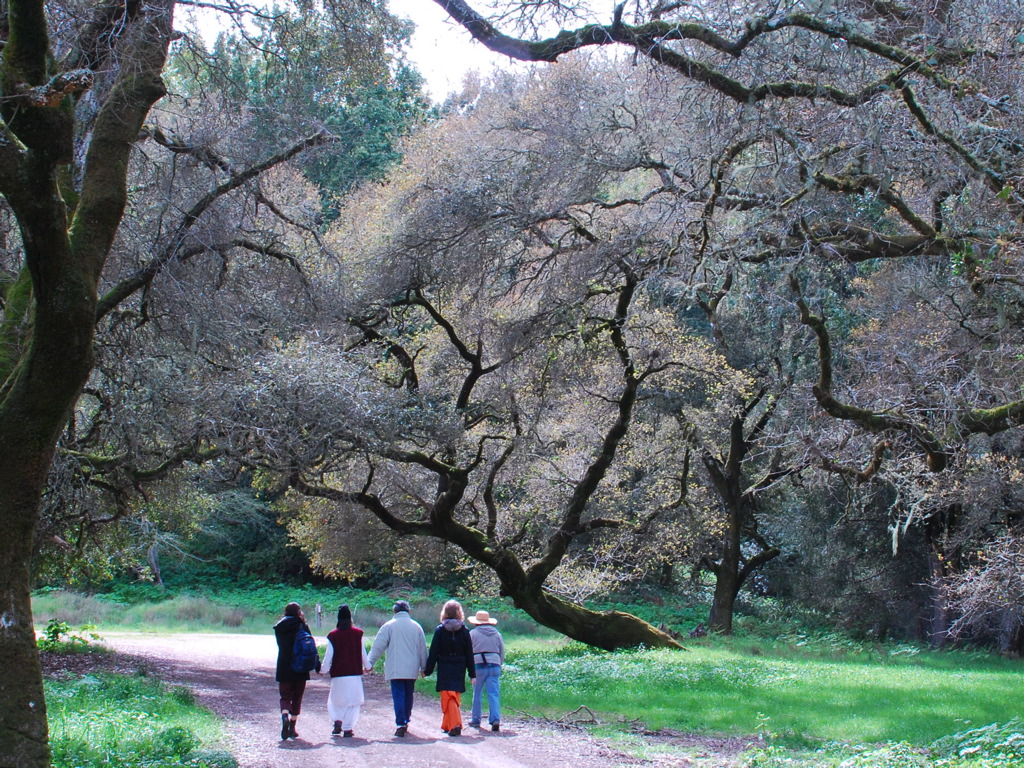By Lynda Bidlake and Lewis BrightHeart Headrick

I join my husband for a late lunch in a local restaurant. The waitress comes back again and again to refill our water glasses, even though we’ve only sipped. At our booth by the window, we are softly reading to each other. Transparently, the waitress is straining to see what title engrosses us. I recognize that hunger.
By Lynda Bidlake and Lewis BrightHeart Headrick

I join my husband for a late lunch in a local restaurant. The waitress comes back again and again to refill our water glasses, even though we’ve only sipped. At our booth by the window, we are softly reading to each other. Transparently, the waitress is straining to see what title engrosses us. I recognize that hunger. Once I spied an elderly couple gazing at each other in open, unbounded joy and love. I knew I was eavesdropping on a private exchange, but I would have given anything to have someone with whom to share such a look. Now I’ve accomplished that vision, and this young woman sees the same caring exchange pass between my husband and me.
Seeing her clear interest, we start talking with the waitress; she forgets all about the water. We tell her that a good relationship requires both time and attention. “We’ve been married for five years, but we meet for lunch when our lives get busy.” She talks breathlessly and fast. She has almost given up hope for her relationship with her boyfriend of five years; it’s gotten tired and stale. He won’t even talk, much less read to her. She avidly asks, “What are you reading? What else do you do?”
Our Shared Practice
We tell her about our practice. Most mornings we get up at 5:30 a.m. She winces, but we jocularly point out that it’s important to find a time when nothing will distract us. Our spiritual life, interwoven with our relationship, comes first. Each morning we take our coffee into our small meditation room. Our altar has cards on it with the names of loved ones in need. An image of Avalokiteshvara hangs on the wall above it. We light a stick of incense and stand it in a small misshapen glass, made by my husband years ago. We light the candle in its salt cylinder, a wedding gift. We ring a bell. These rituals help remind us to be present. We sit, facing the window to the east, and quietly watch the first flickers of dawn.
After twenty minutes, one of us rings the bell again, and we move to sit on our living room couch, between two of Thay’s calligraphies: “I have arrived, I am home,” and “I know you are there, and I am very happy.” There we read to each other. We pull a book off the shelf, letting it fall open where it will; it’s uncanny how often this provides exactly what we need.
The waitress pulls out her order pad and jots down the names of our favorite books, making a heroic attempt to spell Thich Nhat Hanh. We tell her we started with Teachings on Love, which we read at a pace of three or four pages a day. True Love has also been invaluable, providing precisely scripted words to say to each other, no matter the situation. In difficulty, just finding the passage and saying it aloud reassures us that we both intend to work on whatever has tripped us up this time. On easier days, it helps us express our love and appreciation.
Relationship-Building
We recall how we resisted Thay’s instruction to “make an appointment”: when one of you feels hurt by the other’s words or actions, you acknowledge the injury, then give yourselves time to look deeply at it. You make an appointment, say for the next Friday evening, to talk about it. At first we did not see how this idea could work. We were accustomed to talking about difficulties right away, and we feared that the tension would remain high if we waited for an appointment. But we tried it—and we found it very effective. In this way we have avoided making impulsive and possibly hurtful statements; and often by the time the appointment comes, we have already found new understanding and solutions.
We don’t tell her everything we do to nurture our relationship. We don’t tell her about the poetry (including Rumi) that we read to each other, or that we do Sufi and peace dances. We don’t mention retreats or community. We do tell her how difficult this relationship-building can be, and how much time and energy it takes. And that sometimes we slip away from our intentions. But she can see our deep and vibrant love. We wish her well.

Lynda Bidlake, Wholesome Reunion of the Heart, recently retired from a career as a school psychologist. Lewis BrightHeart Headrick, Open Garden of the Heart, is working in mental health after receiving his bachelors in social work at the age of fifty-five.

